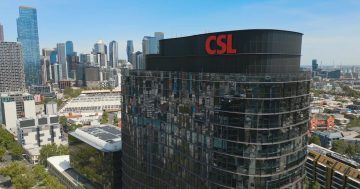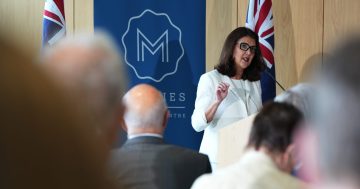
APSC chief negotiator Peter Riordan. Photo: Supplied.
The size of wage increases has stalled negotiations between the Australian Public Service Commission (APSC) and the Community and Public Sector Union (CPSU). But a great deal has been achieved on other fronts over the past three months at the bargaining table.
The CPSU has this week instigated industrial action at Services Australia that it says will only impact internal management systems.
There are plans, however, for potentially harsher industrial action.
The Fair Work Commission has approved further protected action by the union in the form of strikes for up to 24 hours at a time across Services Australia.
But while the union is holding out for a 20 per cent pay increase over three years – and the government is so far sticking to 10.5 per cent – negotiations have canvassed far more than issues of money.
Other areas of disagreement have arisen besides wages.
Most notably in the last fortnight, the APSC has rejected the CPSU’s claim for 10 days of disability leave, as well as its claim for gender affirmation leave.
“The APS could be an employer of choice for people with a disability. But failure to provide disability leave, which is available in other state public sector workplaces, sidelines that and the opportunities that come with it,” CPSU national secretary Melissa Donnelly says.
“Gender affirmation leave is another emerging entitlement in enterprise agreements, already available across many state and territory public sectors and more widely in the private sector.
“The APSC’s unwillingness to come to the table on gender affirmation will leave them behind many other employers who have already made significant progress in this area.”
Other areas of disagreement in the latest round include claims around safe workplaces, climate change and volunteer leave.
The APSC’s chief negotiator Peter Riordan has confirmed that after detailed consideration, the Commonwealth could not support certain items in this round of APS-wide bargaining.
“Some claims relating to gender equality will be picked up through parental leave, flexible work arrangements and lactation breaks,” states an APSC update explaining Mr Riordan’s decisions on those items.
“Legislation requirements for agencies and policy covers the claims put forward to the chief negotiator on these matters.
“The claims put forward on some of these matters do not normally sit in an enterprise agreement, and can be raised at the APS-wide consultative committee.
“He is unable to agree to all claims for new leave types in this round of bargaining.”
But there were 14 common conditions where broad support was reached in the latest talks.
These go to a string of various leave arrangements, overpayments, consultations, resignation processes, and respect at work.
Previously, the CPSU had a significant win over flexible working arrangements, including working from home.
Negotiations are also close to achieving agreement on higher duties allowances, jury duty, remote localities, relocation assistance, individual flexibility arrangements, workloads, disaster support, and lactation breaks.
Then there is a host of items yet to be negotiated at agency level rather than APS-wide.
Two additional bargaining meetings have been scheduled for 15 August and 24 August, with a final package of pay and conditions still to be finalised and presented.
APS employees will vote on the full package after agency-level bargaining is complete.
Original Article published by Chris Johnson on Riotact.











